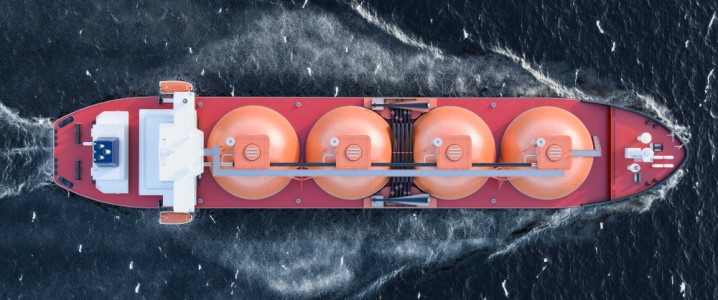
Asian LNG Prices Soar on Fears of Wider Middle East Conflict
Spot LNG prices in Asia jumped to the highest level since the beginning of January amid concerns that the conflict in the Middle East could further escalate.
After lingering at around multi-month lows for nearly the entire winter heating season in the northern hemisphere, spot LNG prices for delivery into north Asia have jumped in recent days amid fears that an Israeli response to the Iranian attack could escalate into a regional conflict that could obstruct LNG cargo flows around the Middle East, most notably via the Strait of Hormuz, where 20% of the world’s LNG trade passes.
Analysts see a low probability that the Strait of Hormuz would be blocked.
Yet, spot LNG prices for delivery into North Asia surged on Tuesday to above $11 per million British thermal units (MMBtu), traders told Bloomberg.
That’s the highest spot LNG price in Asia since early January 2024 and a 40% surge since the end of February.
European benchmark natural gas prices also jumped on Tuesday, closing 6.4% higher and recording a fourth consecutive daily increase, amid concerns about global LNG trade flows. Early on Wednesday, the front-month Dutch TTF futures, the benchmark for Europe’s gas trading, advanced by another 1.6% to the highest level so far this year.
While a mild winter and full gas storage helped Europe through a second consecutive winter without most of the Russian pipeline gas it had previously received, the potential of a widening conflict that could obstruct LNG flows is keeping the European and Asian gas markets on edge.
Europe has become more dependent on LNG imports for its gas supply after losing a large part of the Russian pipeline gas following Moscow’s halt of flows to several EU countries and the sabotage of the Nord Stream pipelines.
European prices have also jumped in recent days amid lower pipeline flows from Norway – now Europe’s top gas supplier – due to unplanned outages.
“The geopolitical environment will also support European gas prices, particularly given the EU’s larger dependence on LNG since the Russia-Ukraine war,” ING strategists Warren Patterson and Ewa Manthey wrote in a note on Wednesday.
“However, fundamentals remain bearish with storage more than 62% full, well above the 5-year average of 43% full for this time of year,” they added.
By Tsvetana Paraskova

